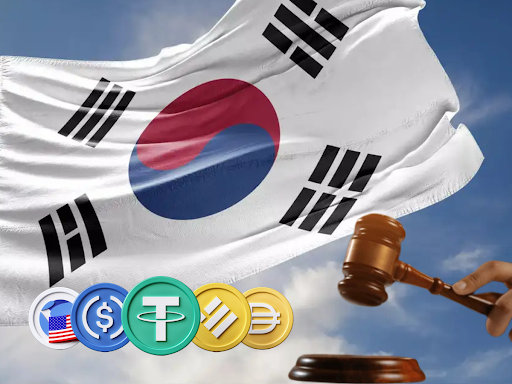- South Korea is introducing a new law to regulate stablecoins and digital assets.
- The bill focuses on licensing, reserves, and investor protection.
- If passed, it could strengthen trust and make South Korea a leader in crypto regulation.
South Korea has taken another step toward building a comprehensive legal framework for digital assets. On June 10, 2025, the ruling Democratic Party introduced a proposed bill aimed at regulating stablecoins and the broader cryptocurrency market. The legislation, titled the Digital Asset Basic Act, sets the groundwork for how stablecoin issuers would operate legally within the country. With this move, South Korea joins a growing list of nations looking to formalize their approach to digital currency oversight.
A Closer Look at the Digital Asset Basic Act
The bill was announced by lawmaker Min Byeong-deok and represents a key part of President Lee Jae-myung’s digital economy strategy. At its core, the bill proposes licensing requirements for stablecoin issuers, particularly those issuing tokens backed by the Korean won. These issuers would need to meet specific capital requirements and maintain reserves that can be protected in the event of bankruptcy.
By putting these measures in place, the government aims to protect users from potential losses while increasing confidence in the local digital asset ecosystem. The proposed regulations would also require issuers to obtain prior approval from the Financial Services Commission before launching stablecoins. This added layer of scrutiny could help prevent abuse and ensure only qualified players operate in the space.
Strengthening Investor Protection and Market Integrity
South Korea’s regulatory push is largely motivated by a desire to reduce the risks associated with unregulated digital assets. Past incidents, such as the collapse of the Terra-Luna ecosystem, which originated in South Korea, have shaken investor confidence. These events exposed major vulnerabilities in the market, particularly around algorithmic stablecoins and the lack of transparency among issuers.
The new bill not only addresses these gaps but also outlines penalties for market misconduct, including insider trading and price manipulation. According to the news, the goal is to ensure that digital assets are treated with the same level of oversight as traditional financial products. Lawmakers believe that this approach will promote a safer and more mature market environment, which could in turn attract institutional investors and foster innovation.
Aligning with Global Regulatory Trends
South Korea’s proposal reflects a wider trend of governments around the world stepping up their crypto regulation efforts. The European Union recently implemented the Markets in Crypto-Assets (MiCA) framework, while the United States and Japan have also been actively working on regulatory updates. By aligning its standards with these major economies, South Korea aims to remain competitive while protecting its financial system.
The bill also supports the development of a local stablecoin ecosystem. President Lee has expressed interest in promoting won-pegged stablecoins and possibly allowing Bitcoin ETFs in the country. These initiatives could position South Korea as a hub for digital finance in Asia, especially if regulations are clear and innovation-friendly.
What This Means for the Crypto Industry
If passed, the Digital Asset Basic Act would mark a significant shift for South Korea’s crypto industry. Startups and established firms alike would need to reassess their operations and ensure full compliance with the new rules. While this may increase short-term costs, the long-term effect could be a healthier, more sustainable market.
The bill also sends a message to global investors and tech companies: South Korea is serious about crypto, and it’s willing to support innovation, so long as it’s done responsibly. With the right balance of regulation and opportunity, the country could become a key player in shaping the future of digital finance.
Final Thoughts
South Korea’s proposed crypto bill shows that the government is taking a proactive stance on regulating digital assets. By focusing on stablecoin licensing, reserve management, and market oversight, the legislation aims to create a safer environment for both users and issuers. As digital currencies continue to evolve, having a clear and well-enforced legal framework will be essential for long-term growth and adoption.


